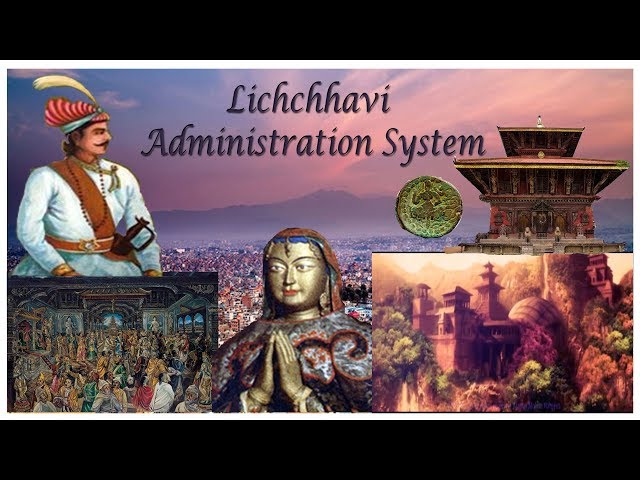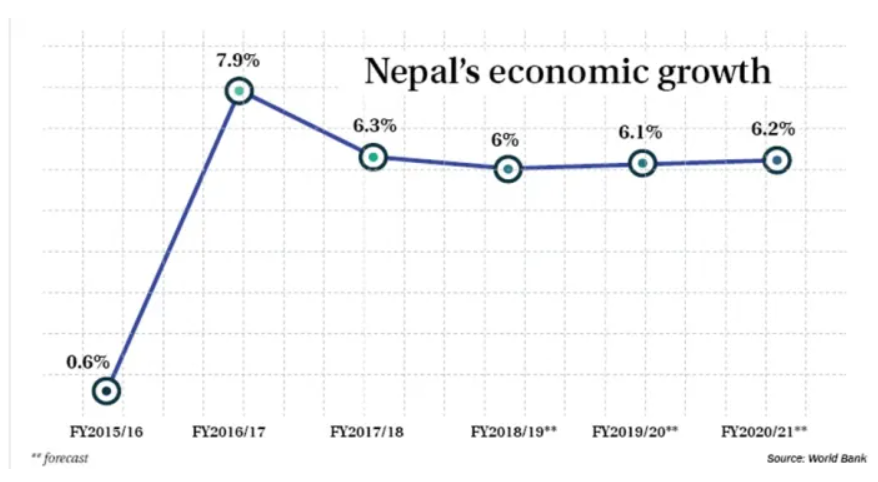Letter Writing – “भाषा प्रवीणता परीक्षा विशेष”

Letter writing is the process of composing a written message, typically on paper, and addressing it to a specific person or organization. Letters are a form of written communication and can serve various purposes, including personal, professional, formal, or informal. Letter writing has been a traditional and widely used means of conveying information, expressing thoughts and emotions, making requests, and establishing formal communication.
Here are some key points related to letter writing:
- Format: Letters often follow a specific format with elements like the sender’s address, date, recipient’s address, salutation, body, closing, and the sender’s signature. The format may vary depending on the type of letter (e.g., formal, informal, business).
- Types of Letters: There are various types of letters, including personal letters, business letters, cover letters, recommendation letters, resignation letters, complaint letters, thank-you letters, and more. Each type has its own conventions and purposes.
- Purpose: Letters can serve different purposes, such as conveying information, expressing gratitude, requesting information or action, providing recommendations, offering condolences, and maintaining social or professional connections.
- Tone: The tone of a letter depends on its purpose and audience. It can be formal, informal, friendly, professional, persuasive, or empathetic, among others.
- Content: The content of a letter should be relevant to its purpose. It may include an introduction, main message, supporting details, and a conclusion. Personal letters may also include anecdotes or personal experiences.
- Addressing: Proper addressing is crucial in letter writing. The recipient’s name and address should be accurate and appropriately formatted. In formal letters, the salutation is typically followed by a colon (e.g., “Dear Mr. Smith:”).
- Signature: A letter typically ends with the sender’s handwritten or electronic signature. In some cases, the sender’s typed name may suffice.
- Attachments: If there are additional documents or materials related to the letter, they may be mentioned in the letter and enclosed with it.
- Proofreading: It’s important to proofread letters to check for spelling, grammar, and punctuation errors. A well-written and error-free letter conveys professionalism and clarity.
- Delivery: Letters can be delivered through various means, such as postal mail, email, fax, or hand delivery. The choice of delivery method depends on the sender’s preferences and the urgency of the communication.
Letter writing remains a relevant and valuable form of communication in both personal and professional contexts, although electronic communication methods have become increasingly popular. It allows for a more thoughtful and personalized approach, making it well-suited for expressing sentiments, addressing formal matters, and building relationships.
Here are explanations of informal, business, official, and application letter writing in detail:
1. Informal Letter Writing:
Purpose: Informal letters are written to friends, family members, or acquaintances for personal communication. They are used to share personal news, express feelings, or maintain social connections.
Format:
- Informal letters are less structured and follow a relaxed format.
- They may begin with a salutation, such as “Dear [Name],”
- The tone is conversational and friendly, often including personal anecdotes, stories, and emotions.
- The letter may not have a formal closing; a simple “Sincerely” or “Love” is common.
- The sender’s signature is often handwritten.
Content:
- Informal letters typically contain updates on the sender’s life, events, or experiences.
- They may include expressions of affection, congratulations, sympathy, or gratitude.
- Personal stories and anecdotes can be included.
- Informal language, contractions, and colloquial expressions are acceptable.
An informal letter, also known as a friendly letter, is less structured and follows a relaxed format compared to formal letters. Here’s a typical format for an informal letter:
[Your Address] [City, State, ZIP Code] [Date]
[Recipient’s Name] [Recipient’s Address] [City, State, ZIP Code]
Dear [Recipient’s Name],
[Opening Salutation]
[Begin your letter with a warm and friendly greeting. You can use casual salutations like “Dear [Recipient’s Name],” “Hello [Recipient’s Name],” or other appropriate greetings based on your relationship.]
[Main Body]
[In the main body of the letter, you can include your message. This is where you share personal updates, stories, or express your thoughts and feelings. You can include multiple paragraphs to cover different topics.]
[Closing]
[Conclude your letter with a closing statement that suits your relationship with the recipient. Some common closings for informal letters include “Love,” “Best wishes,” “Yours,” “Take care,” or other friendly and informal phrases.]
[Your First Name]
[Signature]
[If you’re sending a handwritten letter, sign your name below your closing. If you’re typing the letter, you can leave space to sign it later.]
Example of an Informal Letter:
123 Main Street Anytown, USA 12345 January 15, 2023
Jane Smith 456 Elm Street Othertown, USA 67890
Dear Jane,
I hope this letter finds you well. It’s been a while since we last caught up, and I wanted to share some exciting news with you. I recently got accepted into the university of my dreams, and I’m over the moon about it. I can’t wait to start this new chapter in my life and explore all the opportunities that come with it.
I also wanted to tell you about the trip my family and I took last summer. We visited the Grand Canyon, and it was absolutely breathtaking. The vast, rugged beauty of the canyon left us all in awe. I couldn’t help but think about our camping trips from childhood, and I felt a deep sense of nostalgia.
In other news, I’ve started a new job at a local nonprofit organization. It’s been incredibly fulfilling, and I’m excited to make a positive impact in our community. The team here is fantastic, and I look forward to the challenges and opportunities that lie ahead.
I hope we can plan a get-together soon. It would be wonderful to catch up in person and hear about all the exciting things happening in your life as well.
Take care, and I look forward to hearing from you soon.
Best wishes,
[Your Signature]
(Your printed name)
This format provides a flexible structure for informal letters, allowing you to convey your personal messages and experiences in a warm and friendly tone.
2. Business Letter Writing:
Purpose: Business letters are used for formal communication in professional settings. They serve various purposes, such as conveying information, making requests, or addressing business-related matters.
Format:
- Business letters follow a formal format with specific elements, including the sender’s and recipient’s addresses, date, salutation, body, closing, and signature.
- The tone is professional, and language is formal and polite.
- They may use standard closing phrases like “Sincerely,” “Yours faithfully,” or “Yours truly.”
- Business letters may be typed or printed and can be sent electronically or in print.
Content:
- Business letters are concise and to the point.
- They often begin with a formal salutation, such as “Dear Mr. Smith” or “To whom it may concern.”
- The body of the letter provides a clear and formal explanation or request.
- The language is professional and avoids informal expressions.
- Specific details, such as reference numbers or dates, may be included.
A formal letter follows a structured format and is used for official, professional, or business communication. Here’s a typical format for a formal letter:
[Your Name]
[Your Title or Position, if applicable]
[Your Company or Organization, if applicable]
[Your Address]
[City, State, ZIP Code]
[Date]
[Recipient’s Name]
[Recipient’s Title or Position, if applicable]
[Recipient’s Company or Organization, if applicable]
[Recipient’s Address]
[City, State, ZIP Code]
Salutation:
[Begin your letter with a formal salutation, using the recipient’s title and last name. For example, “Dear Mr. Smith,” “Dear Dr. Brown,” “Dear Ms. Johnson.”]
Opening Paragraph:
[In the first paragraph, briefly introduce yourself or the purpose of the letter. Mention how you came to know the recipient or the reason for writing.]
Body of the Letter:
[In the main body of the letter, present your message or request. Use paragraphs to organize your points logically. Be clear, concise, and professional in your language.]
Closing Paragraph:
[In the closing paragraph, summarize the key points and any requested actions. Express gratitude, if applicable.]
Closing:
[Choose a formal closing phrase based on the tone of the letter, such as “Sincerely,” “Yours faithfully,” “Respectfully,” or “Best regards.”]
[Your Signature]
[If you are sending a physical letter, sign your name in ink above your typed name. If the letter is digitally or electronically generated, you can include your typed name.]
Enclosures (if applicable):
[If you are including additional documents with the letter, list them under “Enclosures” or “Attachments” at the bottom of the page.]
Example of a Formal Letter:
John Smith
Director of Sales ABC Corporation
123 Main Street Anytown, USA 12345
January 15, 2023
Ms. Emily Davis
Human Resources Manager XYZ Enterprises
456 Elm Street Othertown, USA 67890
Dear Ms. Davis,
I am writing to express my interest in the open position of Senior Marketing Manager at XYZ Enterprises, as advertised on your company’s website. With over 10 years of experience in marketing and a proven track record of driving successful marketing campaigns, I believe I can make a valuable contribution to your team.
In my current role as the Director of Sales at ABC Corporation, I have consistently exceeded sales targets and implemented innovative marketing strategies that have boosted our market share. I have a strong background in market research, product launch planning, and brand management, which I believe aligns well with the requirements of the Senior Marketing Manager position.
I have attached my resume for your reference, which provides more details about my qualifications and experience. I am excited about the opportunity to discuss how my skills and expertise can benefit XYZ Enterprises.
Thank you for considering my application. I look forward to the possibility of meeting with you to further discuss my qualifications and the potential contribution I can make to your team. Please feel free to contact me at [Your Phone Number] or [Your Email Address] to schedule a meeting at your convenience.
Sincerely,
[Your Signature]
John Smith
Enclosures:
- Resume
This format provides a professional structure for formal letters, making them suitable for business communication, job applications, official correspondence, and more.
3. Official Letter Writing:
Purpose: Official letters are used for formal or legal communication in various contexts, including government, legal matters, and official notices.
Format:
- Official letters are highly structured and adhere to formal conventions.
- They include sender and recipient addresses, date, salutation, body, closing, and signature.
- The tone is formal, and language is precise and often legal in nature.
- Specific formatting rules may apply depending on the context, such as legal document formatting.
Content:
- Official letters are typically used for legal notices, government communication, or formal correspondence with authorities.
- They often follow specific templates or prescribed formats.
- The content is legally binding and adheres to legal terminology.
- The language is precise and avoids ambiguity.
- Specific references, such as legal codes or regulations, may be included.
4. Application Letter Writing:
Purpose: Application letters, also known as cover letters, are used to accompany a resume when applying for a job or other opportunities. They introduce the applicant, highlight qualifications, and express interest in the position.
Format:
- Application letters follow a formal structure and typically include the sender’s and recipient’s addresses, date, a formal salutation, body, closing, and signature.
- The tone is professional and tailored to the specific job application.
- Standard closing phrases, such as “Sincerely” or “Yours faithfully,” are used.
Content:
- Application letters introduce the applicant to the employer or hiring manager.
- They provide a brief overview of the applicant’s qualifications, experience, and reasons for applying.
- The content is tailored to the specific job or opportunity, highlighting relevant skills and experiences.
- Application letters often include a call to action, expressing the applicant’s eagerness for an interview or further discussion.
- The language is professional, and the letter may refer to the attached resume or other documents.
An application letter, often referred to as a cover letter, is a formal document submitted along with a resume or job application. It serves as an introduction, highlights your qualifications, and expresses your interest in a specific job or opportunity. Here’s a typical format for an application letter:
[Your Name]
[Your Address]
[City, State, ZIP Code]
[Your Email Address]
[Your Phone Number] [Date]
[Recipient’s Name]
[Recipient’s Title or Position, if applicable]
[Company Name]
[Company Address]
[City, State, ZIP Code]
Salutation:
[Begin your letter with a formal salutation, using the recipient’s title and last name. For example, “Dear Mr. Smith,” “Dear Dr. Brown,” “Dear Ms. Johnson.” If you don’t have a specific name, you can use “To whom it may concern.”]
Opening Paragraph:
[In the first paragraph, state the position you are applying for and how you learned about the job opportunity. If someone referred you to the position, mention their name and connection. Express your strong interest in the role.]
Middle Paragraph(s):
[In the body of the letter, emphasize your qualifications, experiences, and skills that make you a suitable candidate for the position. Relate your qualifications to the specific requirements mentioned in the job posting. Use examples to support your claims. You can also address your enthusiasm for the company and how you align with its values or mission.]
Closing Paragraph:
[In the closing paragraph, express your eagerness to further discuss your qualifications in an interview and thank the recipient for considering your application. Include a call to action, such as inviting them to contact you for an interview.]
Closing:
[Choose a formal closing phrase that fits the tone of the letter, such as “Sincerely,” “Yours faithfully,” “Respectfully,” or “Best regards.”]
[Your Signature]
[If you are sending a physical letter, sign your name in ink above your typed name. If the letter is digitally or electronically generated, you can include your typed name.]
Enclosures (if applicable):
[If you are including additional documents with the letter, list them under “Enclosures” or “Attachments” at the bottom of the page.]
Example of an Application Letter:
Jane Smith 123 Oak Street Anytown, USA 12345 jane.smith@email.com (123) 456-7890 January 15, 2023
Mr. Robert Johnson Hiring Manager ABC Company 789 Elm Avenue Othertown, USA 67890
Dear Mr. Johnson,
I am writing to apply for the Marketing Manager position at ABC Company, which I learned about through the job posting on your company’s website. With a background in marketing, a proven track record of successful campaigns, and a passion for creating innovative marketing strategies, I am eager to contribute to your dynamic team.
In my current role as a Marketing Specialist at XYZ Corporation, I have played a key role in developing and executing effective marketing campaigns that led to a 20% increase in revenue over the past year. I have experience in market research, brand management, and digital marketing, which I believe aligns well with the requirements of the Marketing Manager position at ABC Company.
I have attached my resume, which provides a more detailed overview of my qualifications, including my education and professional background. I am excited about the opportunity to discuss how my skills and expertise can benefit your team and help achieve ABC Company’s marketing goals.
Thank you for considering my application. I look forward to the possibility of an interview to further discuss my qualifications and how I can contribute to the continued success of ABC Company. Please feel free to contact me at (123) 456-7890 or jane.smith@email.com to schedule a conversation at your convenience.
Sincerely,
[Your Signature]
Jane Smith
Enclosure:
- Resume
This format provides a professional structure for an application letter and is commonly used when applying for job positions or other opportunities.
Each type of letter writing serves distinct purposes and follows specific conventions in terms of format, tone, and content. It’s essential to understand the requirements of each type and tailor your letter accordingly for effective communication.




